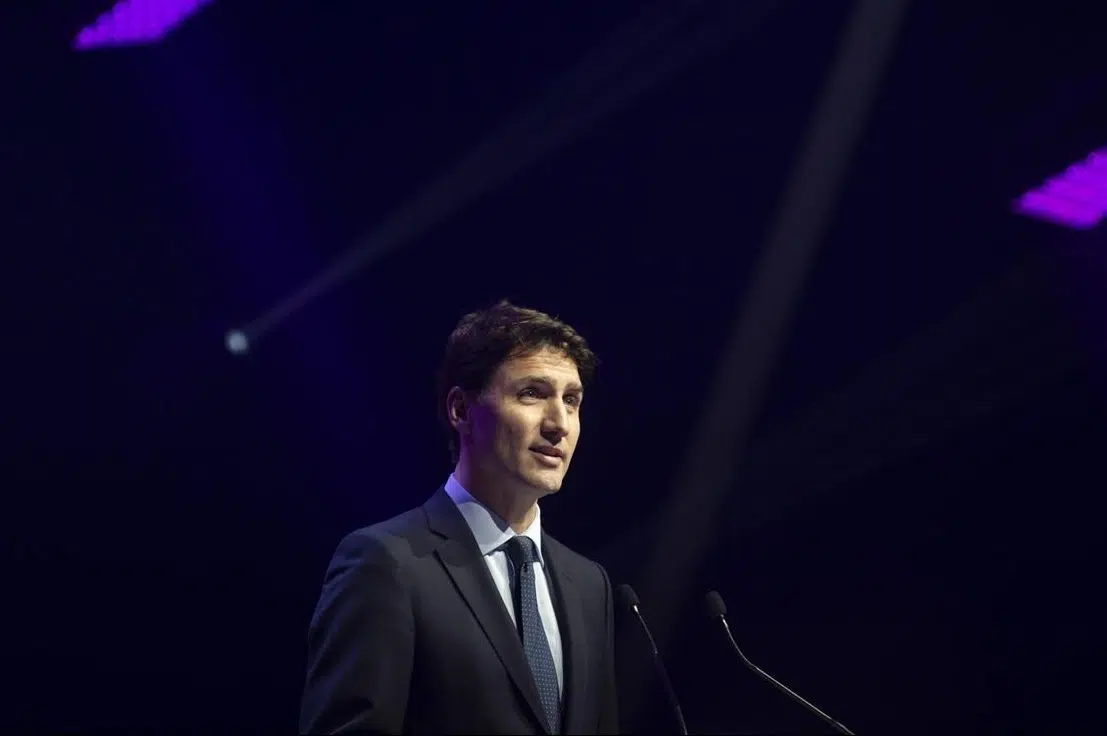PARIS — Canada intends to introduce a new digital charter to combat hate speech, misinformation and online electoral interference, Prime Minister Justin Trudeau told a technology conference in Paris on Thursday.
Trudeau’s announcement, made during a speech at the VivaTech conference, an international summit that brings together startups and technology leaders, was short on specifics as to the charter’s contents.
But the prime minister said he’s confident the framework his government will propose will restore the faith of citizens while holding online platforms accountable.
“We look forward to working alongside internet companies, but indeed, if they do not choose to act, we will be forced to continue to act in ways that protect Canadians and we will have more to say about the kinds of tools we will be using in the coming weeks and months,” Trudeau said. “Canadians expect us to keep them safe, whether it’s in real life or online, and we will do just that.”
Innovation Minister Navdeep Bains is expected to provide more details at a summit on digital governance in Ottawa in late May.
Social media and combating online extremism were at the top of the agenda as Trudeau finished up his two-day trip to France.
As various countries signed on to the “Christchurch Call” on Wednesday, many social-media companies, including Facebook, Google and Twitter, pledged to step up their efforts to prevent their platforms from being used to spread hatred, help extremist groups organize and broadcast attacks.
In Christchurch, New Zealand, in March, a gunman used Facebook’s livestreaming feature to show himself shooting worshippers at a mosque, the beginning of a two-stage attack that ultimately killed 51 people. The video was quickly posted and reposted on numerous other sites.
The man accused in the attacks allegedly posted a long manifesto beforehand, including numerous references to online conspiracy theories and hateful memes.
Some countries, notably the United States, were absent from the summit in Paris, raising concerns about the curtailing of freedom of expression and freedom of the press as reasons not to join the pledge.
But Trudeau told a news conference that many countries supported the global pledge, including host country France, Britain, Australia and Japan. Global co-ordination is a necessary part of combating online extremism, he said, and that’s part of the reason he announced Canada’s digital charter while abroad.
“We know that we need to move forward in real and tangible ways to make sure that our citizens are kept safe online as well as in real life,” Trudeau said.
In addition to a working lunch with French President Emmanuel Macron, Trudeau met with New Zealand’s Prime Minister Jacinda Ardern earlier Thursday.
Ardern praised Canada’s efforts, saying it was one thing to offer condolences following the Christchurch mosque attacks, but it was quite another to turn those words into actions in Paris.
Trudeau and Ardern discussed online violence and extremism in their respective countries, but also broached trade and security commitments around the world.
“We are like-minded nations, but we need to make sure we are sending the message that the efforts we are undertaking are all in parallel with also supporting a free, open and secure internet and that those expressions of freedom of speech can live in harmony with what we are trying to do with the work against violent extremism and terrorism,” Ardern said.
Following a bilateral meeting and working lunch, Trudeau and Macron spoke to reporters briefly outside the presidential Elysee Palace. The two are expected to meet again in Normandy in a few weeks and later this summer at the G7 meeting in Japan.
Trudeau said he was heartbroken during a visit to Paris’s fire-ravaged Notre Dame Cathedral on Wednesday, but was inspired by the work and courage of firefighters who were able to salvage much of the building. He repeated a pledge Wednesday to offer any support needed in the rebuilding of the landmark church — on Wednesday, he offered Canadian steel and softwood lumber to those efforts.
Later Thursday, Trudeau met with Wikipedia founder Jimmy Wales, also on the issue of combating online extremism.
Catherine Levesque , The Canadian Press







